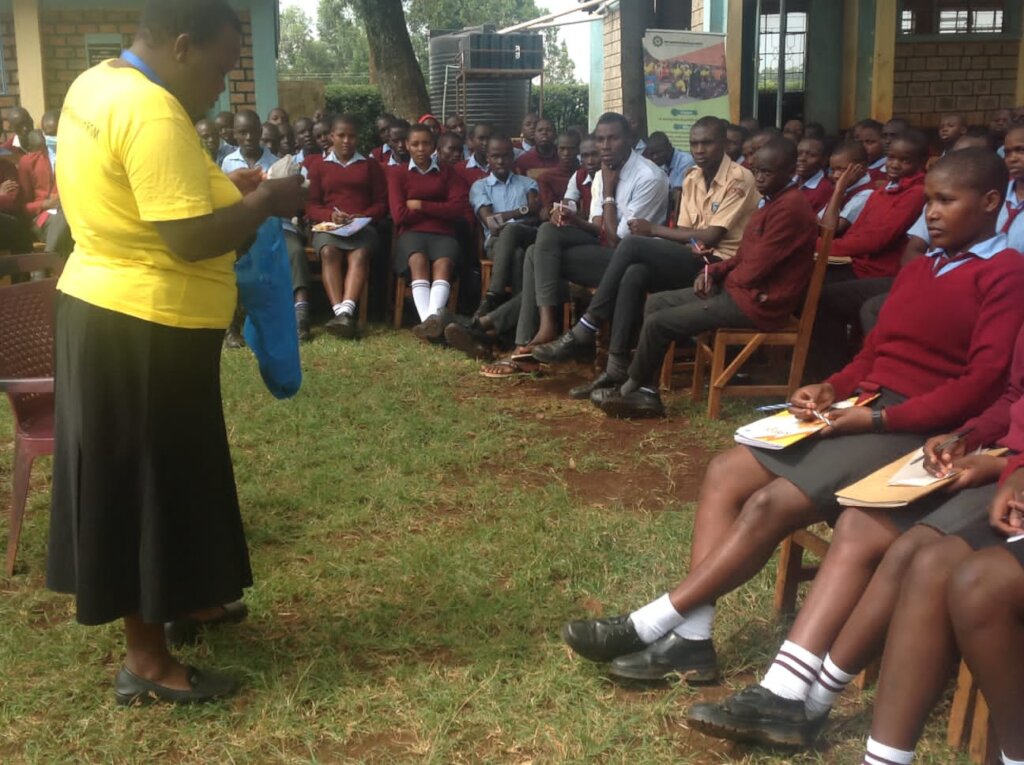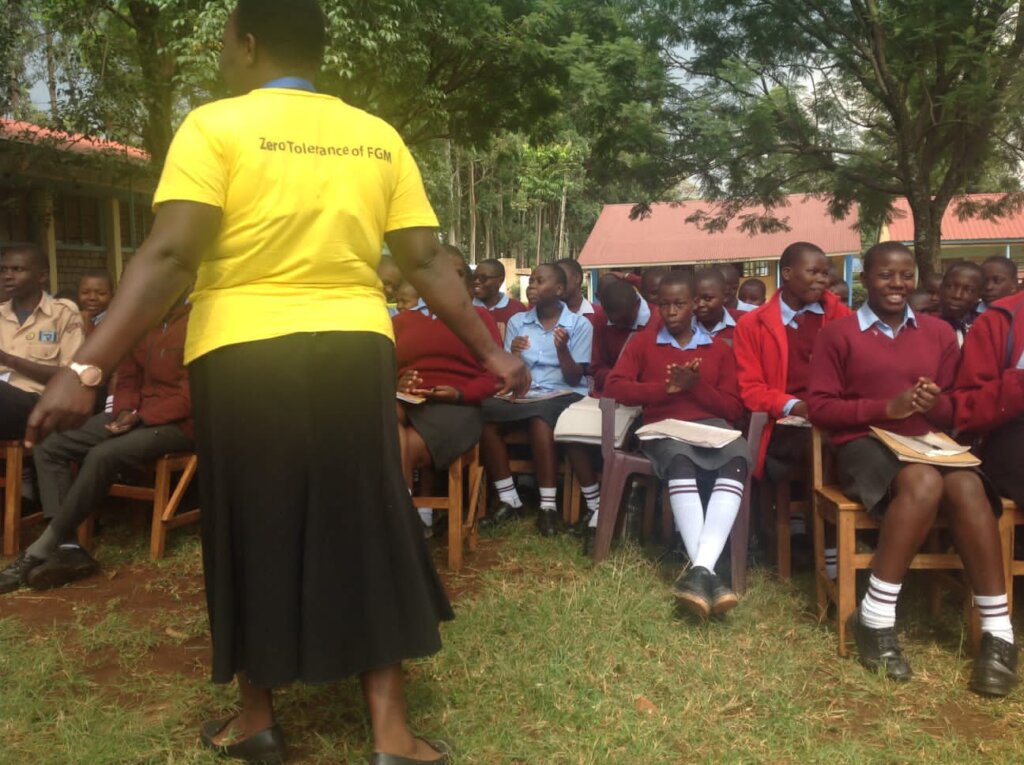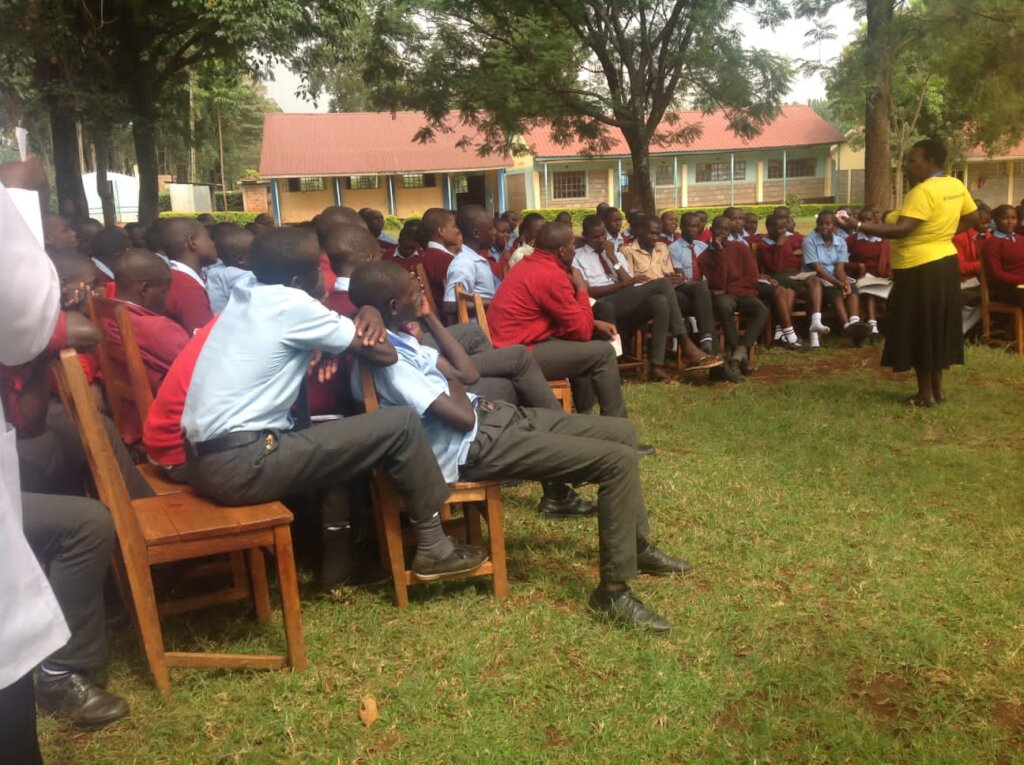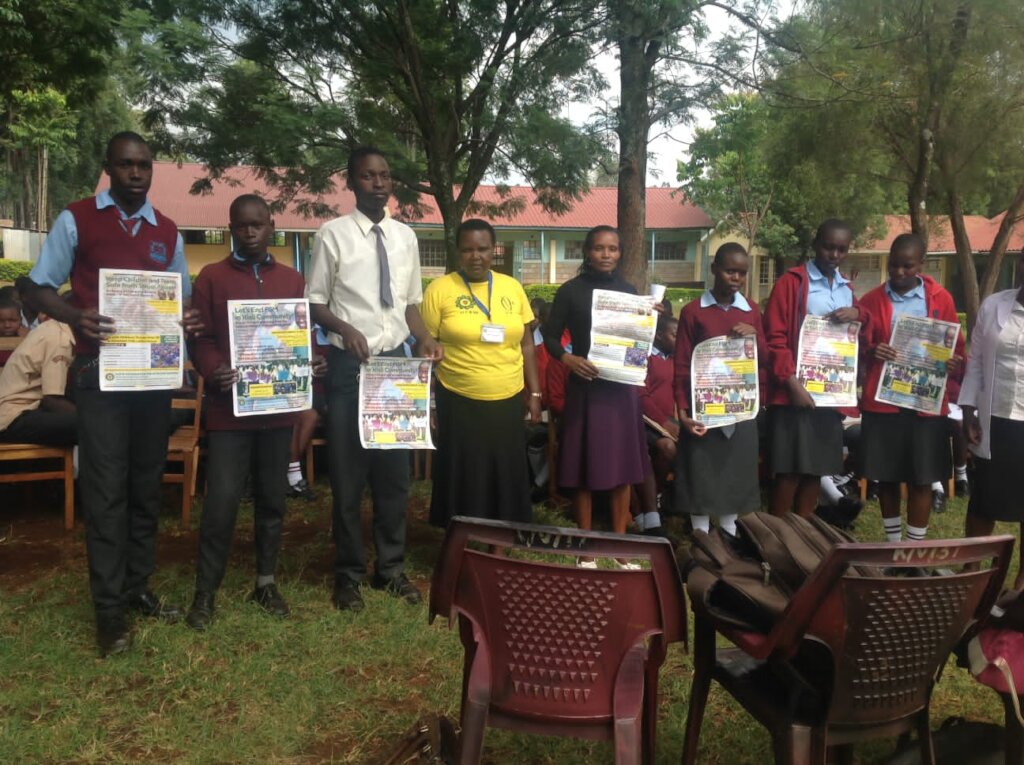By Doris Kananu | Program Director
Dear Esteemed Partners,
On our recent visit to Kea Mixed Secondary School in Nyamira County, the HFAW team engaged learners in a critical discussion on Female Genital Mutilation (FGM) and its link to early teenage pregnancy. Kea Secondary has a student population of 500, comprising 280 girls and 220 boys, with 25 teachers—15 female and 10 male. This advocacy session aimed to dispel harmful myths, educate students on the dangers of FGM, and empower them to stand against it.
The session began with an introduction from the school administration, welcoming HFAW and acknowledging the importance of addressing these pressing issues. The team then took the learners through a detailed discussion on how FGM is a form of Gender-Based Violence (GBV) and how it contributes to teenage pregnancies. The learners were highly receptive, demonstrating a willingness to learn and engage in open conversations.
One of the most impactful moments of the session came when Nyaboke, not her real name, a Grade 11 student, voiced her realization: “You’ve explained everything in such a clear way. Now I understand that what our parents told us about FGM controlling sexual urges is a lie. From today, I will never allow this act to happen in my presence. Someone will go to jail for it.” Her words reflected a deep transformation in her understanding of the practice and its consequences.
Shadrach, not his real name, was particularly moved by the images presented during the session, showing the medical complications associated with FGM. “Those pictures are terrifying, especially the one showing a keloid scar. Do our parents even know that something like this can happen? I feel sorry for our girls. From today, we will protect you,” he declared, expressing a newfound sense of responsibility toward his female peers.
HFAW staff informed the students that efforts to engage parents—both men and women—as well as community leaders are already part of our broader strategy. These conversations are not limited to schools; we are actively organizing forums within communities to ensure parents and guardians receive the same vital information their children are learning. By involving entire households, we aim to foster a unified stand against FGM. Additionally, mentorship programs are being rolled out to provide students with continued support, enabling them to become champions of change within their own environments.
For some students, the session changed their long-held beliefs about FGM. Sibia, not her real name, admitted that she had once eagerly awaited undergoing the practice, thinking it was an important rite of passage. “I used to beg my mum to allow me to be cut because of the gifts our elders received. But today, I have learned that FGM is GBV, and I no longer want anything to do with it,” she confessed.
Ben, not his real name, added his perspective, explaining how FGM influences teenage pregnancies. “The way these girls change after undergoing FGM is noticeable—their walking, their talking, their entire behavior shifts. I agree with you now that what they are taught during the process makes them more likely to get pregnant early.”
One of the most insightful contributions came from Josiah, not his real name, who pointed out that advocacy should not stop with the students. “Our visitors, what you need to do now is speak to our parents. Show them these pictures and help them understand the dangers of FGM. Some of them might not even realize what they are doing to their daughters.”
By the end of the session, it was evident that the learners had undergone a significant transformation in their understanding of FGM and its consequences. They expressed their commitment to spreading awareness and standing against the practice. Many students also agreed that involving parents in future discussions would be essential in changing community perceptions and ending FGM for good.
We extend our sincere gratitude to all our partners and supporters who make this work possible. Your unwavering commitment enables us to reach vulnerable communities and equip young learners with the knowledge they need to protect themselves and their peers. Together, we will continue to fight against FGM and promote gender equality in all spaces.
With warm regards,
Doris Kananu Muthengi
Program Director.
Project reports on GlobalGiving are posted directly to globalgiving.org by Project Leaders as they are completed, generally every 3-4 months. To protect the integrity of these documents, GlobalGiving does not alter them; therefore you may find some language or formatting issues.
If you donate to this project or have donated to this project, you can receive an email when this project posts a report. You can also subscribe for reports without donating.
Support this important cause by creating a personalized fundraising page.
Start a Fundraiser


